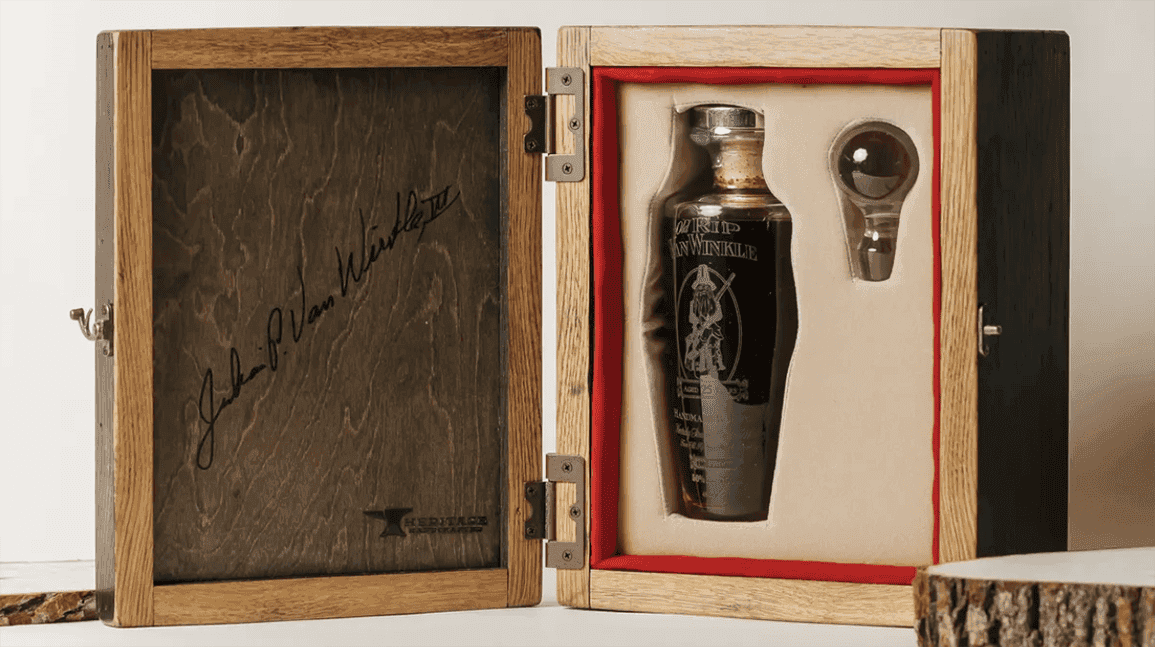Every Sunday, Chicago-based rare spirits auction house Unicorn Auctions runs a sale of spirits and wine, running the gamut from $20 “sippers” to name-brand bourbons of prestigious vintages.
Despite its founding in 2020 — an absolute neophyte compared to industry titans such as Sotheby’s and Bonhams, both of which were founded in the 18th century — the platform has already established a name for itself as a premier destination for sellers, buyers and whiskey enthusiasts alike, boasting nearly $100 million in sales and more than 200,000 lots while in “stealth mode” for much of the past few years.
Founded by early Uber employee Phil Mikhaylov and Cody Modeer, the concept was born out of a recognition and appreciation for spirits, their inherent collectibility and front-facing role in everyday life.
During COVID, one of the co-founders owned a whiskey bar in Evanston, Illinois, and wanted to sell $80,000 worth of spirits at auction. But rather than take his full collection, the auction house was only interested in taking his Pappy Van Winkle and Macallan bottles — two names that equal royalty in the spirits world. Despite his protest, explaining his Wild Turkey Split Label was actually superior, he was rebuffed.
Like many entrepreneurs, Modeer and his Mikhaylov solved their own problem with Unicorn, establishing a platform for all types of spirits.
The company, which also has a vault component — storing collections for some of the largest collectors in the world, numbering hundreds of thousands of bottles secured in its facilities, every one of which is digitized and available to its owner via a client portal — grew by word of mouth in its initial years.
“Every customer has become our megaphone,” Mikhaylov told cllct, explaining how the company’s commitment to the fundamentals (sourcing great bottles) led to an influx of supply and consignment.
Previously, Unicorn ran a “Curated” auction once each year, specializing in higher-quality bottles with unique stories (fitting of the company’s name). Today, as Unicorn has grown to employ 55 people and sells an increasingly high number of bottles each week, in addition to many of top-notch quality, the company added an additional “Curated” auction, one of which ended last weekend.
The highlight of the auction, undoubtedly, was lot No. 1: A limited-edition Old Rip Van Winkle 25-Year Bourbon, which sold for $37,200.
Anything hailing from the famed distillery, legendary for its Pappy Van Winkle — which Anthony Bourdain loved so much he once tweeted he was considering a “full back Pappy Van Winkle tattoo” — was sure to catch plenty of eyeballs.
But this bottle, which began its life in 1989, distilled in Stitzel-Weller (considered a “cathedral” of the American Whiskey industry) and left for Buffalo Trace 13 years later, until it was finally bottled as one of 710 limited-edition productions in 2017. It originally retailed for $1,800.
While this history and provenance dotting the roads of whiskey heaven was certainly qualification for a lofty price tag, however, one feature adds rarified air to the 750-ml bottle: Julian Van Winkle III signature on the inside of the box.
Julian, the third generation of the Van Winkle family to run the famed business (his grandfather was the whiskey’s namesake “Pappy”), is the Steve Jobs of whiskey. For his signature to accompany such a significant bottle is not only rare, but as far as Mikhaylov knows, totally unprecedented.
“The collector had a close relationship with him,” Mikhaylov explained, noting the same collector sold the record-breaking 6-liter bottle of Buffalo Trace for $123,000 through Unicorn.
“Well, I got one that, you know. I know you guys have sold it before, but I got one that's even more unique,” the seller told Mikhaylov. “So when we open the inside, we’re like ‘f--- that’s cool’.”
While the signed Van Winkle was the star of the auction, which Mikhaylov expected to surpass $1 million in sales across 1,200 lots, it’s far from the only “Unicorn” offered. The auction was curated with intention to bring bottles from a “bygone era which aren’t going to be produced again.”
Not even modern-day Pappy would qualify, not least of all because the producer has upped its volume in recent years.
“These are all super unique bottles that are from a distillery that no longer exists anymore,” Mikhaylov said, referencing a rare “Paul Jones & Co. Four Roses” produced pre-prohibition, which presents remarkably well considering its age.
Mikhaylov, who grew up collecting memorabilia and eventually running his own business as a high school student in Chicago, has a keen understanding of the passion and motivations of whiskey collectors, evidenced by his effusive and erudite manner of speaking about the topic and his mission with Unicorn.
He’s proud of Unicorn’s ability to turn new buyers into aficionados, but equally so of the unique experience each bottle is able to provide to buyers.
“So, with a distillery that's closed and someone wants to try something … there is an element of just trying it, because you're like, well, it's never going to come out again,” Mikhaylov said. “What is it? Why is it different? What made it different? And it's, it's like, kind of time travel, in a way.”
Will Stern is a reporter and editor for cllct.

